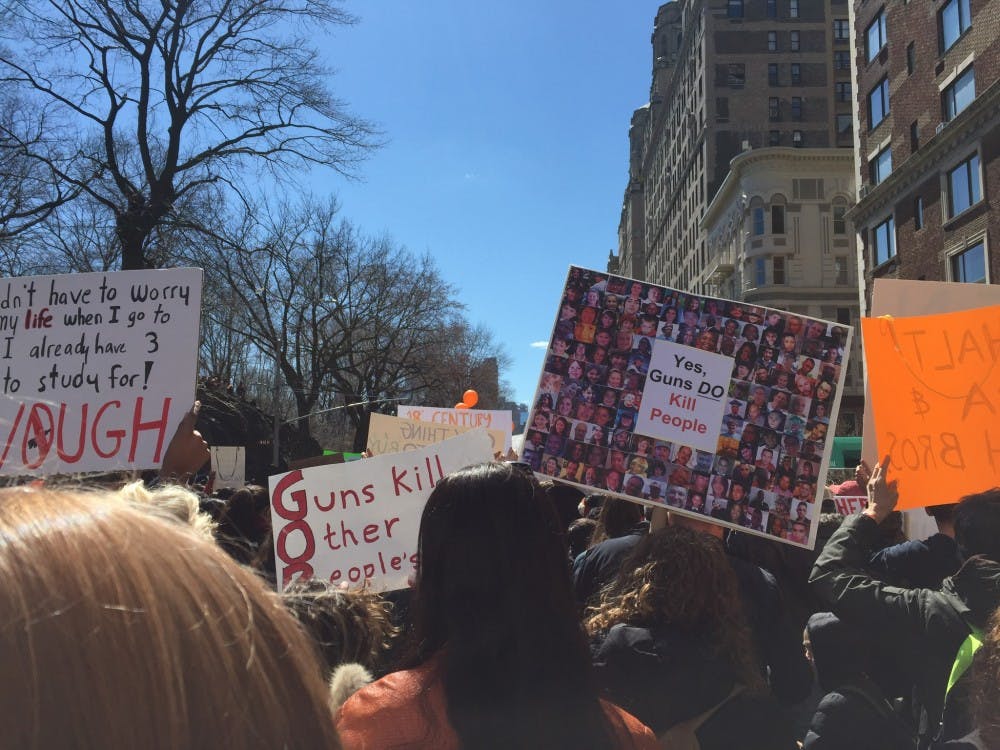If you ask the average American to describe the average college campus in the United States, they would probably reply by using adjectives such as “vibrant,” “energetic,” and most importantly, “activist.” The idea of being politically vocal on and off campus has been a predominant theme characterizing college students as a whole.
Princeton, however, is different. Throughout history, the University has rarely been in the news for inciting some kind of macro political change (with the exception of Nassau Hall Sit-In in 2015, which gained some coverage). During the Vietnam War, students joked that “even Princeton” had participated in the student protests against the draft.
To use a common cliché, we must pop this Orange Bubble: the bubble of political apathy. And that is why I propose that we host more campus-wide events involving outside political speakers.
I could not say that the characterization of the University as predominantly apolitical is entirely correct. After all, there have existed a sizable number of small-scale protests organized in the past couple of years, such as the ones against gun violence or Trump’s election as president. Most notably, the petition to remove Woodrow Wilson’s name from the university, while unable to achieve its intended objective, gained media coverage.
What is true, nevertheless, is that such a sense of activism does not shape the dominant culture of the student body. The limited nature of these protests diminishes their visibility. Moreover, even during the short span of time I have been on campus, I have seen that despite the recent political controversies over confirmation of Supreme Court Justice Brett Kavanaugh or novel discoveries in the Trump-Russia scandal, discussions over political issues rarely came to the forefront of daily conversations among students. Even the small sparks of political awareness that do occur, such as traditional public debates or the political activities fair, are confined to the areas surrounding Whig and Clio Halls — they definitely are not campus-wide phenomena.
Inviting more politically-driven speakers, while not resolving the issue entirely, would incentivize students to naturally engage more with political subjects. In regards to specific qualifications, it would be ideal if they were politically relevant, famous, and hold defined and potentially even radical views on the issues at hand. Theoretically, the events could be hosted by anyone on campus, ranging from faculty members to student organizations—but in particular, I urge that both the University administration and Undergraduate Student Government get political.
By “get political,” I do not mean that they should advocate for a certain worldview. Instead, I urge them to actively host events that have political content, whether it be welcoming members of Congress to speak or hosting on-campus debates between candidates for an upcoming election. Events involving speakers invited by student organizations tend to serve some purpose that is rarely political, and even if they are, it is difficult for them to garner attention from the whole student body. The administration and USG, on the other hand, have the influence and additional funding to invite more influential speakers, and consequently make it so that events are both large-scale and widely advertised.
One may additionally doubt the utility of bringing speakers to campus in creating long-term cultural change. But that certainly overlooks the way in which many students perceive the introduction of various “outside” figures coming inside the supposedly boring Orange Bubble. When it was advertised that Waka Flocka Flame would be coming to Lawnparties this fall semester, it became the subject of an abundance of conversations among students.

The same holds for many politically relevant figures. For instance, the invitation of Supreme Court Justices Sonia Sotomayor and Elena Kagan to the She Roars event sparked a temporary surge of political interest — I saw lines for tickets extending to outside of Frist Campus Center, along with a heightened level of excitement among the students.
Along the same line, if it was announced that either Bob Menendez or Bob Hugin was campaigning and speaking at Princeton, previously indifferent students would certainly pay attention. Considering their candidacy for Senate in the upcoming election, the news would be noteworthy enough to precipitate fierce discussion over numerous different issues, ranging from whether it is even legitimate for them to be invited on campus to begin with to the viewpoints they hold as adversaries on controversial matters in mainstream American politics. The point is that if such pattern of discussion kindled by outside speakers continues, it will gradually change the school culture in a way that is conducive and more open to political discussion and participation.
It is time for the University to change its student culture so that it connects to the world beyond Nassau Street. If Princeton’s location prevents students from participating in politics outside, then we must bring the outside to the campus — disrupting the relative tranquility within which many students find themselves in.
Jae-Kyung Sim is a freshman from Sejong City, South Korea. He can be reached at j.sim@princeton.edu.









